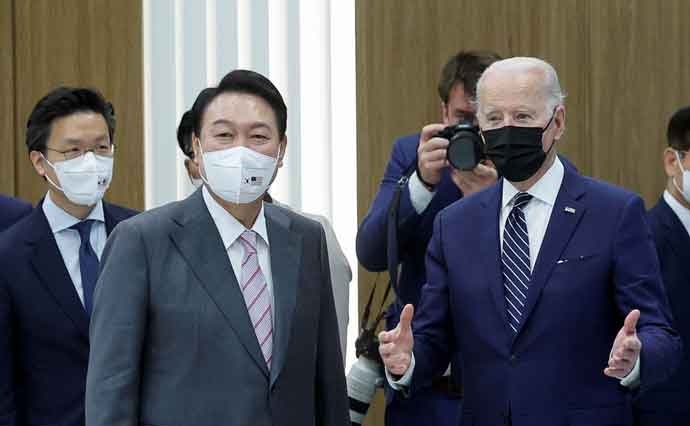Guo Chunmei, Associate Researcher, Institute of Southeast Asian and Oceanian Studies, CICIR
Feb 07, 2023
While the United States is attempting to use Australia for its own purposes, the future is bright. The island continent’s relationship with China is setting sail in a stormy environment, but emerging cooperation is certain to become both stable and durable.
Sajjad Ashraf, Former Adjunct Professor, National University of Singapore
Jan 31, 2023
Australia’s alignment to the West and its trade barriers with China has entrenched tensions between the two Asian countries.
Chung-in Moon , Chairman of the Sejong Institute and Vice Chair of APLN, Republic of Korea
Dec 22, 2022
We need to learn how to respect differences and live harmoniously, because not all people or cultures are alike. It’s not healthy for the new Indo-Pacific concept — which works against open regionalism — to replace the traditional notion of the Asia-Pacific.
Cao Yanzhong, Senior Colonel and Researcher, Institute of War Studies of the Academy of Military Sciences, Chinese PLA
Dec 17, 2022
The region has maintained overall security and stability for more than 40 years, largely because of the strategic rationality and sobriety of governments in the neighborhood. Major powers that want to interfere should take note.
Dan Steinbock, Founder, Difference Group
Nov 15, 2022
Not so long ago, Australia was known for its booming economy and balanced foreign policy. Today its economy is stagnating, while the U.S. Big Defense casts a dark shadow over its foreign policy - as evidenced by nuclear escalation.
Xiao Bin, Deputy Secretary-general, Center for Shanghai Cooperation Organization Studies, Chinese Association of Social Sciences
Jul 12, 2022
The abusive use of alliances in the region will only hurt. Judging from history and current reality, peace will not flower with a China of 1.4 billion people trapped in stagnation, nor will it help to foster hostile interactions with its neighbors.
Sajjad Ashraf, Former Adjunct Professor, National University of Singapore
Jul 07, 2022
Is the U.S. ready to meaningfully engage with the Asia-Pacific region? Their latest offering comes in the form of the IPEF, and the differences between the U.S.-led trade pact and competing ones led by Asian powers will show whether American leadership has brought enough to the table.
Chen Jimin, Guest Researcher, Center for Peace and Development Studies, China Association for International Friendly Contact
Jun 02, 2022
The United States does not rule out cooperation with China on particular issues, but the prominence of cooperation in principle has dropped significantly. Indications are that areas of possible cooperation are narrowing and the difficulty is increasing.

Zhao Minghao, Professor, Institute of International Studies at Fudan University, and China Forum Expert
May 24, 2022
Washington is looking to shore up its Indo-Pacific strategy by further roping in South Korea and Japan. Its strategy is alive and well despite the Russia-Ukraine conflict, and China’s peripheral diplomacy will continue to face thorny challenges.

Yang Wenjing, Research Professor, Institute of American Studies, CICIR
May 04, 2022
China is gaining influence for a reason: Its approach is helpful — and this irritates the United States. But the Solomon Islands is a sovereign country and as such is entitled to develop security relationships as it sees fit.
Back to Top

- China-US Focus builds trust and understanding between the U.S. and China through open dialogue among thought leaders.
- Our Offerings
- Topics
- Videos
- Podcasts
- Columnists
- Research Reports
- Focus Digest
- Stay Connected
-
Thanks for signing up!
- Get the latest stories from China-US Focus weekly.